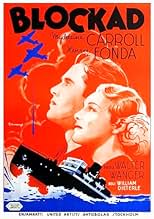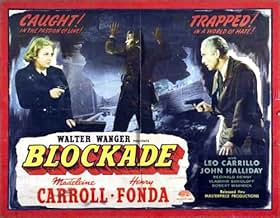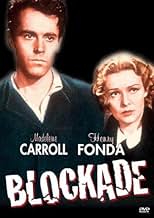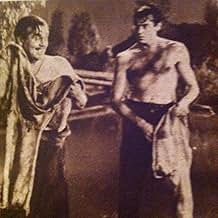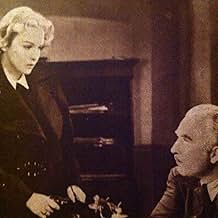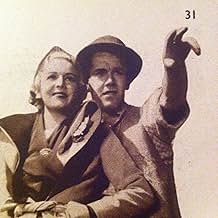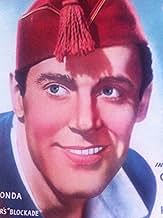Añade un argumento en tu idiomaA simple peasant is forced to take up arms to defend his farm during the Spanish Civil War. Along the way he falls in love with Russian whose father is involved in espionage.A simple peasant is forced to take up arms to defend his farm during the Spanish Civil War. Along the way he falls in love with Russian whose father is involved in espionage.A simple peasant is forced to take up arms to defend his farm during the Spanish Civil War. Along the way he falls in love with Russian whose father is involved in espionage.
- Dirección
- Guión
- Reparto principal
- Nominado para 2 premios Óscar
- 3 premios y 2 nominaciones en total
- Pietro
- (as Fred Kohler Sr.)
- Commandant
- (as Wm. B. Davidson)
- Cabaret Singer
- (as George Byron)
- Townswoman
- (sin acreditar)
Reseñas destacadas
Politically,the film remains vague,always referring to the enemy as "they" like in Borzage 's 'three comrades" (but that was a great film though).The war was over on the first of March 1939;thus the film ,made in 1938,warns us ,in a clumsy way,that it's only the beginning:propaganda movies can be great,but it takes a strong screenplay (best example:"the mortal storm" Frank Borzage) and not a cat and mouse play between spies ,corrupt officers and profiteers of war.
In consequence ,the best scenes ,IMHO,are those which deal with the masses;the starving faces ,watching the ship sinking down are reminiscent of Eisenstein,whose influence was huge at the time.
The screenplay, as if you couldn't guess, is by one of the blacklisted Hollywood Ten, John Howard Lawson, who wrote a number of left-leaning works for both the theatre and cinema at this time and I must admit I was surprised to learn that this one was nominated for an Academy Award this particular year.
The story is both simple and contrived. A lowly, young Spanish farmer, Fonda, with his oafish chum encounters Carroll after she crashes her car at breakneck speed on the road where they're walking their cattle. Just as you wouldn't guess Fonda was a native Spaniard from his accent, Carroll we later learn despite her cut-glass English accent is actually a Russian whose father, we learn is aiding the fascist Nationalist forces, presumably at the behest of Stalin.
Then, of a sudden, the Spanish Civil War kicks off with Fonda's character seemingly unaware that it was even in the wind. Sure enough, he enlists on the underdog Republican side, although these descriptive terms are never used in the film and when he discovers Carroll's father's treachery to his country, shoots him dead. You might think that this would be enough to turn her forever against him but you'd be wrong, although initially she of course has to see the error of her ways, even if she seems to have betrayed the starving native Spaniards by passing on intelligence which enables the oppressors to sink each relief ship, bringing in essential food and supplies, attempting to break the imposed blockade.
It sort of all ends up all right in the end thanks to a cunning piece of duplicity by the resistance with Fonda and Carroll now firmly committed to fighting for their poor countrymen, women and children with the last word going to Fonda making a rallying call directly to the viewer for other countries to help his beleaguered nation as they will surely be next to be threatened by the rise of fascism in the west.
I'm all for the political motivations behind the movie which must have taken some bravery for the cast and crew to produce but really it's very heavy-handed in its writing, seems to be directed in a very-slapdash fashion by William Dieterle and is acted over-earnestly by Carroll and in particular Fonda.
I kind of wished the production had instead made the trip to Spain to film at first-hand in documentary fashion the horrors of this terrible war, but lame and stilted as this movie was, its heart at least was in the right place so I'll forgive some of its all too apparent flaws and give it a tacit nod of approval.
For political propaganda that both entertains and persuades, let me suggest Casablanca. For political propaganda that offers only a few glimpses of the radiant Madeleine Carroll and nothing more, I recommend Blockade. That, unfortunately, is not enough to salvage this less than scintillating 1930s leftist pap.
The story doesn't take sides and was prohibited in some American cities in USA day since . Of course , it was also banned in Spain . The tale does not attempt to favor any cause in the present conflict. Care has been taken to prevent any costume of the production from being accurately that of either side in the Spanish civil war . The film was nominated Best Music, Original Score composed by Werner Janssen . Kurt Weill even wrote music for the original project that was never used. The movie can be seen nowadays as a War/romance/drama with some exciting images , well organized crowd and thrilling scenes . The topic of the Spanish Civil War was politically sensitive and there is some hint that the upheavals of the original project were due to the political content of the film. Much of the dialogue for the movie was supplied by the black-listed John Howard Lawson who was nominated ACademy Award for Best Writing, Original Story and novelist James M Cain (though uncredited and famous author of ¨The postman always rings twice¨) wrote interesting dialogs . The picture was professionally directed by William Dieterle but this film Blockade(1938) was too libertarian to keep him completely from the shadow of suspicion as a socialist sympathizer.
This German director had great artistic style and worked with much energy in providing some of Hollywood's and the world's crown jewels of cinematic art. He immigrated to the US and was in Hollywood by 1930s with the offer of directing for Warner Bros. and began directing their series of German-language versions of released films, including: Those Who Dance (1930), The Way of All Men (1930) and subsequently directing dramas (Scarlet down , Fog over Frisco , Fashions), costumer (Kismet,Omar Khayyan) and biopics (Life of Emile Zola , Dr Ehrlich , Juarez , Madame Curie , Reuter) that were a revelation at the box-office. Dieterle some of Warner's American output (his first, The Last Flight (1931), is now regarded as a masterwork) which would ramp up to his being at the helm of six pictures a year through 1934. After that , he directed an extravaganza ,William Shakespeare's "A Midsummers Night's Dream" . Dieterle would direct Paul Muni for Warner's in three first-rate Bio movies: The Story of Louis Pasteur (1936), The Life of Emile Zola (1937), and Juarez (1939) Oscar nominations in all of them. After that , Dieterle moved on to do The hunchback of Notre Dame (1939) at RKO with Charles Laughton as Quasimodo that was one of Dieterle's best efforts . Through the 1940s, Dieterle moved around among the studios executing always vigorously wrought film work, such as, two 1940 Bios with Edward G. Robinson at Warner's. He became associated with independent producer David O. Selznick and actor Joseph Cotten first with his direction of I'll be seeing you (1944). Rating 'Blockade' : 6 , acceptable and passable . Worthwhile watching .
Sooner the Spanish Civil War begins and Marco leads a group of peasants to defend Castelmare and he is assigned lieutenant of the rebels' army. Meanwhile, Basil and Norma are forced to spy for Andre Gallinet (John Halliday). Marco suspects of Basil and follows him to his room. When Basil reacts, Marco kills him in a shooting.
Meanwhile, Castelmare is under siege and without supplies, and Norma escapes from Marco. But she is blackmailed by Gallibet and forced to return to Castelmare with information about the ship that is bringing supplies for the population.
"Blockade" is a shallow and corny melodrama during the Spanish Civil War (17 July 1936 to 01 April 1939). The dull romance between Marco and Norma has no chemistry and the author uses a historical event that is happening in 1938 in a neutral position and no references. The final speech of Henry Fonda's character is one of the awfullest conclusions that I have ever seen in a classic. My vote is five.
Title (Brazil): "Bloqueio" ("Blockade")
¿Sabías que...?
- CuriosidadesThe original title of this film was "The River is Blue" and the director was to be Lewis Milestone. Kurt Weill even wrote music for the project that was never used (lyrics by Ann Ronell). The title was changed to "The Rising Tide" and "Castles in Spain," then finally to "Blockade." The topic of the Spanish Civil War was politically sensitive and there is some hint that the upheavals of the original project were due to the political content of the film.
- Citas
Marco: [last lines, after being told to find peace] Marco: Peace? Where can you find it? Our country's been turned into a battlefield! There's no safety for old people and children. Women can't keep their families safe in their houses; they can't be safe in their own fields! Churches, schools, hospitals are targets! It's not war; war is between soldiers! It's murder! Murder of innocent people! There's no sense to it. The world can stop it! Where's the conscience of the world?
- ConexionesFeatured in Red Hollywood (1996)
Selecciones populares
Detalles
Taquilla
- Presupuesto
- 692.087 US$ (estimación)
- Duración1 hora 25 minutos
- Color
- Relación de aspecto
- 1.37 : 1

